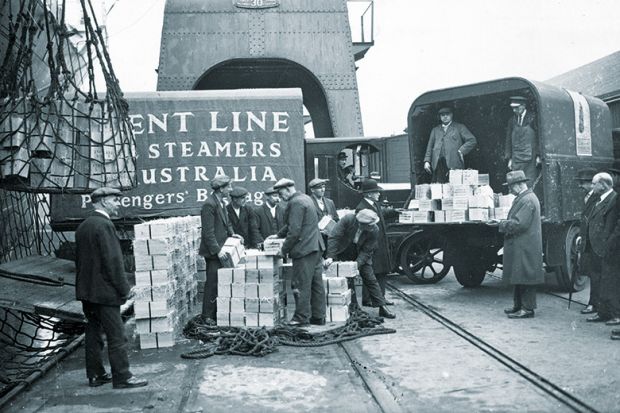The UK has been urged to learn from Australia’s experience of treating higher education as an export industry and including it in international trade agreements, as the nation contemplates a post-Brexit future.
Higher education as trade was a theme in the opening session at Universities UK’s International Higher Education Forum, held in London on 21 March.
Mark Garnier, parliamentary under-secretary in the Department for International Trade, told the event: “We will harness the UK’s commitment, expertise and resources to export our education services to the world, so that everyone can use education as a vehicle to fulfil their potential.”
However, Mr Garnier’s focus was almost exclusively on transnational education – the provision of courses outside an institution’s home country. That approach sidestepped any mention of the Home Office’s policy of toughening the UK’s student visa regime and of continuing to include students within targets to reduce net migration – policies criticised by universities and some in the Conservative Party.
"Many countries with a large school-leaver population are without sufficient higher education in the country to meet demand," Mr Garnier said. "This presents a huge export opportunity for our top-class educational institutions…and we look to fill this demand.”
He added that the DIT has recruited a new higher education specialist "to support the sector’s global ambitions”.
Vivienne Stern, director of Universities UK International, who chaired the session, said that the UK would "look particularly" to Australia to learn about a higher education sector's experience of trade negotiations, which were, she added, "something I think we’re all going to have to get a little bit more familiar with".
Paul Wellings, vice-chancellor of the University of Wollongong, cited Australian government figures showing that education service exports were worth $19.9 billion (£12.2 billion) to the nation’s economy in 2015-16, behind only iron ore and coal.
“From a political point of view, we moved from 20 years ago not being on this chart [of exports], to being one of the most significant and important [export] sectors for Australia,” Professor Wellings said.
He highlighted the fact that Australia’s free trade agreement with Singapore, struck in 2003, makes specific mention of higher education and quality assurance as areas where exchange “shall” take place.
On any potential UK-Australia trade deal post-Brexit, Professor Wellings suggested that student and staff mobility would be “deal breakers”.
Another of the session’s speakers, Phil Baty, editor of the Times Higher Education World University Rankings, highlighted how leading universities "need to draw on a global talent pool for students and faculty, and they need to be researching in collaborative teams across borders to solve the world’s shared grand challenges".
Sir Keith Burnett, vice-chancellor of the University of Sheffield, contrasted the “extraordinary growth in nationalism across many countries” with the goal of universities “to propagate knowledge, propagate mutual understanding across the world”.
He said the decisions of McLaren to open a supercar chassis factory in Sheffield and of Boeing to build a new manufacturing facility in the city were “all because international students enable us to get 5,000 engineering students” in the city.
“If we go away from the idea that we are international, we will lose almost everything as institutions,” he added.
Register to continue
Why register?
- Registration is free and only takes a moment
- Once registered, you can read 3 articles a month
- Sign up for our newsletter
Subscribe
Or subscribe for unlimited access to:
- Unlimited access to news, views, insights & reviews
- Digital editions
- Digital access to THE’s university and college rankings analysis
Already registered or a current subscriber? Login










